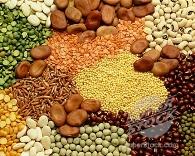
"Given the high prices of primary food articles and waning base effect and an expected decline in agriculture production, the Wholesale Price Index inflation might surge to around 6 per cent by end of the current fiscal," Kaushal Sampat, chief operating officer, Dun & Bradstreet India told PTI.
Kaushal said inflation in primary food articles stood at 13.3 per cent, a figure last seen in December 1998.
Inflation stood at 0.70 per cent for the week ended September 26. However, the rate of price rise fell from 0.83 per cent in the previous week on slight easing of food prices over the week.
The drought-hit kharif crop, which accounts for over 50 per cent of total agriculture output, will impact rural consumption and industrial sector subsequently, Sampat said.
"Lower agriculture growth might have a negative impact on the rural consumption demand and subsequently on the industrial sector. Expected lower agriculture production might also put downward pressure on agriculture exports, which accounts for around 11.3 per cent of total exports," he said.
India faced its worst drought in over 40 years, followed by floods in Andhra Pradesh and Karnataka in south India, triggering fears of a food shortage.
"The drought is also expected to exert an upward pressure on an already high fiscal deficit, on account of the likely increase in expenditure on food subsidy and relief measures for distressed farmers," Sampat said.
The government has proposed a huge market borrowing programme of roughly Rs 4 lakh-crore as part of increased expenditure.
"The huge borrowing programme of the central government is a serious concern. The total debt servicing for FY10 is estimated to be 36.7 per cent of total revenue receipts in FY10, which leaves less funds for expenditure on critical sectors like health, education and infrastructure," he said.
A high debt servicing will exert further pressure on fiscal deficit, Sampat added. A high fiscal deficit may also go against the Reserve Bank's intention of lowering interest interest rates in the banking system.